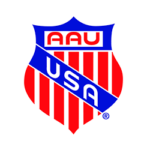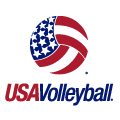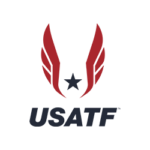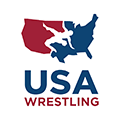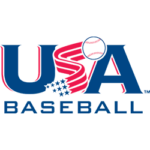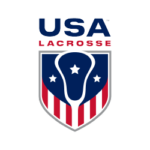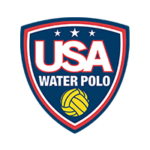2024-25 NCAA Recruiting Calendar and Recruiting Guide
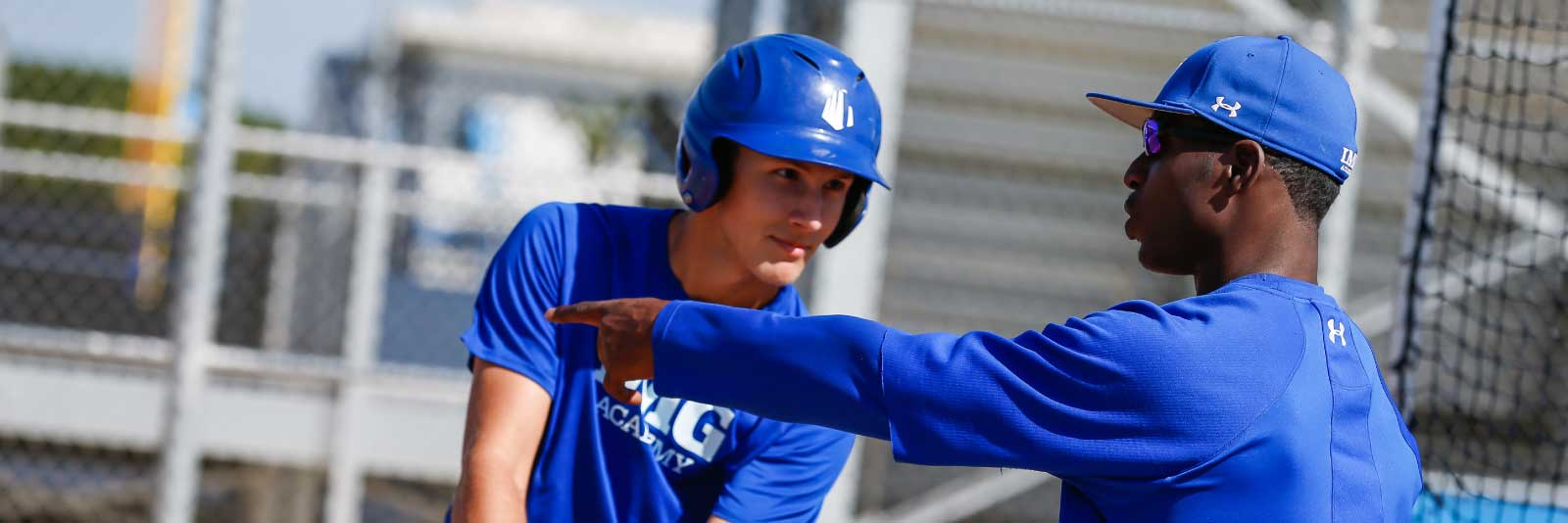
The NCAA Recruiting Calendars outline when—and how—NCAA D1 and D2 college coaches can proactively start recruiting athletes. However, the dates don’t represent when student-athletes should start certain recruiting steps. As early as eighth grade, families begin researching colleges, evaluating what division level is best for their athlete, ensuring they are on the path to NCAA eligibility and even proactively reaching out to college coaches.
Overall, the NCAA Recruiting Calendars seek to protect elite athletes from receiving overwhelming amounts of communication from college coaches by designating certain time periods when coaches cannot contact athletes. The NCAA explains, “Recruiting calendars help promote the well-being of prospective student-athletes and coaches and ensure competitive equity by defining certain time periods in which recruiting may or may not occur in a particular sport.”
Insider Tip: No matter the time or date, you as a student-athlete can always initiate contact with a coach. The rules only enforce when coaches can initiate contact with you. Check out our tips for contacting college coaches.
READ MORE: A Parent’s Guide to Navigating Junior Year Recruiting
NCAA rules for high school athletes
The NCAA Recruiting Rules mandate the types of communication athletes can receive from college coaches based on the athlete’s year in high school. Just like college coaches, high school athletes need to be diligent about following the NCAA recruiting rules to avoid possibly disqualifying themselves from the recruiting process.
How to use the NCAA Recruiting Calendars
Use the recruiting calendar alongside the NCAA Recruiting Rules. The NCAA Recruiting Calendars show the specific recruiting time periods throughout the year when coaches can contact athletes—and when coaches aren’t allowed to contact athletes.
Generally speaking, the most important dates on the calendar will be June 15 or September 1 (depending on your sport), going into the athlete’s junior year of high school. For most sports, this is when coaches can start reaching out to recruits. For more specific dates, find your sport-specific calendar below.
Key terms in the NCAA Recruiting Calendars
To better understand the NCAA Recruiting Calendars, it’s important to familiarize yourself with the following terms:
As you look through the NCAA Recruiting Calendar for your sport, keep an eye out for some of the particular days that stand out within each period. For example, you may have a quiet period from September 1 through November 25, but within that time span, there will be a designated number of evaluation days in which coaches can assess either your athletic or academic qualifications in person.
Find your sport at the DI or DII level
Quick Links
What is the NCAA recruiting guide?
The NCAA recruiting guide is a booklet of information distributed each year by the NCAA to help student-athletes, families, high school coaches and administrators understand the initial eligibility process for Division 1 and Division 2 schools. The guide provides resources, such as:
- Time management expectations for Division 1 athletes
- An initial eligibility checklist
- How to register for a Certification Account – and who needs one
- Division 1 and Division 2 academic standards
- Division 3 academic information
- Division 1 and Division 2 initial eligibility worksheets
- Required courses and test scores
- An explanation of recruiting rules specifically for homeschool students and international students
- Important terms
- Recruiting calendars
- Scholarship opportunities at NCAA schools
- Useful information about the National Letter of Intent
We recommend reviewing this information with your family and guidance counselor to ensure that you are checking off all the boxes to be academically eligible to compete in your sport at the next level. The NCAA Recruiting Guide contains the eligibility information for both Division 1 and Division 2 schools.
Division I Bowl Subdivision Football Recruiting Calendar
- August 1-31, 2024: Dead period
- Except: The 48 hours before a home game in August or September 1-2 through the 48 hours after the conclusion of the game is considered a quiet period
- September 1 – December 1, 2024: Evaluation period
- Thirty-three (42 for U.S. service academies) evaluation days during the fall evaluation period.
- December 2–8, 2024: Dead period
- December 9–22, 2024: Quiet period
- December 23, 2024 – January 5, 2025: Dead period
- Except: January 1–5, 2024: Quiet period for two- and four-year college transfer prospective student-athletes who intend to enroll midyear.
- January 6 – February 1, 2025: Contact period
- Except: Jan 12 Quiet Period
- Except: Jan 13–15 Dead Period
- February 2, 2025: Quiet period
- February 3 – March 2, 2025: Dead period
- March 3 – April 14, 2025: Quiet period
- April 15 – May 25, 2025: Contact period
- One hundred forty (180 for U.S. service academies) recruiting-person days (see Bylaw 13.02.11) during the spring contact period.
- May 25–28, 2025: Dead period
- May 29 – June 22, 2025: Quiet period
- June 24 – July 31, 2024: Dead period
Division I Championship Subdivision Recruiting Calendar
- August 1–31, 2024: Dead period
- Except: Forty-eight hours before a home contest (on the institution’s campus or in a facility normally used for its home games) that occurs in August or on Sept. 1 or 2 through 48 hours after the conclusion of the contest.
- September 1 – December 1, 2024: Quiet period
- Thirty-three (42 for U.S. service academies) EVALUATION PERIOD evaluation days (see Bylaw 13.02.7.1) during the fall evaluation period.
- December 2–5, 2024: Dead period
- December 6–19, 2024: Contact period
- December 20–22, 2024: Quiet period
- December 23 – January 5, 2025: Dead period (exception below)
- January 1–5, 2025 Quiet period for two- and four-year college transfer prospective student-athletes who intend to enroll midyear.
- January 12, 2025: Quiet period
- January 13–15, 2025: Dead period
- February 2, 2025: Quiet period
- February 3 – March 2, 2025: Dead period
- March 3 – April 14, 2025: Quiet period
- April 15 – May 24, 2025: Contact period
- One hundred forty (180 for U.S. service academies) recruiting-person days (see Bylaw 13.02.11) during the spring contact period.
- May 25–28, 2025: Dead period
- May 29 – July 31, 2025: Quiet period
Division I Baseball Recruiting Calendar
- August 1–18, 2024: Contact period
- August 19 – September 12, 2024: Quiet period
- September 13 – October 13, 2024: Contact period
- October 14, 2024 – February 28, 2025: Quiet period
- Except: November 11–14, 2024: Dead period
- Except: November 26 – December 1 2024: Recruiting shutdown
- Except: December 22–27, 2024: Recruiting shutdown
- Except: January 2–5, 2025: Dead period
- March 1 – July 31, 2025: Contact period
- Except: May 26 – June 2, 2025: Dead period
- Except: June 21–23, 2025: Dead period
- Except: July 3–5, 2025: Dead period
Division I Men’s Basketball Recruiting Calendar
For the men’s basketball recruiting evaluation periods, there are two different kinds of evaluation periods that take place. During the April evaluations, coaches can only evaluate recruits at NCAA-certified events. If you are on an AAU team or participating in a club basketball tournament at that time, chances are, it’s an NCAA-certified event. You can always double check if the event is NCAA-certified before you attend.
During the remainder of the evaluation periods, all live evaluations must take place at a regularly scheduled high school, prep school or two-year college tournament, practice or game. Again, it’s important to know when the evaluations can happen, but chances are, the coach will let you know when they plan to visit you during this time.
- August 1 – September 3, 2024: Quiet period
- Exception: August 6–20, 2024: Dead period
- September 4 – April 30, 2024: Recruiting period (Dead period exceptions below)
- November 11–14, 2024
- December 24–26, 2024
- April 3–10, 2025
- May 1 – June 30, 2025: Quiet period (Exceptions below)
- May 11, 2025: Dead period
- May 16–18, 2025: Evaluation period
- May 21 – June 1, 2025: Dead period
- June 15, 2025: Dead period
- June 19, 2025: Dead period
- June 20 (noon) – 22, 2025: Evaluation period
- June 27 (noon) – 29, 2025: Evaluation period
- July 1–30, 2025: Dead period (Except evaluation period below)
- June 10–13, 2025
- July 18–20, 2025
- July 21–23, 2025
- August 1–31: Quiet period
- Except August 6–20, 2025: Dead period
*A prospective student-athlete may not make an unofficial visit during the month of July unless he has signed a National Letter of Intent or the institution’s written offer of admission and/or financial aid, or the institution has received a financial deposit from the prospective student-athlete in response to an offer of admission
Division I Women’s Basketball Recruiting Calendar
The NCAA includes a special note for coaches, explaining that any evaluations that occur outside of July, count toward their allotted 112 total in-person recruiting days. Families don’t need to worry about the number of days coaches have to make in-person evaluations, but it’s important to know that evaluation days aren’t unlimited. Coaches have to choose who they will see, which means that they likely won’t just show up to your high school unannounced. Instead, they will probably contact you to arrange a day that works with both of your schedules.
- August 1–31, 2024: Quiet period
- Except August 12–18 Recruiting shutdown
- Sept 1–30, 2024 (For seniors and two year college PSAs only. Evaluation period for other PSAs for scholastic activities only.)
- October 1 – February 28, 2025: Evaluation period (scholastic activities only)
- Except: December 24–26, 2024: Dead period
- March 1 – April 2, 2025 (For seniors and two year college PSAs only. Evaluation period for other PSAs for scholastic activities only.)
- April 3–7, 2025: Dead period
- April 8 – July 31, 2025: Quiet period
- Except April 25–27: Evaluation period (Certified non-scholastic events only.)
- May 5–11: Recruiting shutdown
- May 16–18: Evaluation period (Certified non-scholastic events only.)
- June 10–11, 2025: Dead period
- June 12 (noon) – June 14 (6 pm), 2025: Evaluation period
- July 9–10, 2025: Dead period
- July 11–14, 2025: Evaluation period
- July 15–17, 2025: Dead period
- July 18–18, 2025: Evaluation period
- July 25–28, 2025: Evaluation period (For NCAA College Basketball Academy only)
Division I Men’s/Women’s Cross Country and Track & Field Recruiting Calendar
- August 1–21, 2024: Evaluation period
- August 22 – December 8, 2024: Contact period
- Except: November 11–14, 2024: Dead period
- Except: November 23, 2024: Dead period
- December 9, 2024 – January 1, 2025: Dead period
- January 2 – July 31, 2025: Contact period
- Except: March 14–15, 2025: Dead period
- Except: June 11–14, 2025: Dead period
Division I Men’s Golf Recruiting Calendar
- August 1 – November 27, 2024: Contact period
- Except: November 11–14 2024: Dead period
- November 28 – December 1, 2024: Dead period
- December 2–22, 2024: Quiet period
- During this time, a coach can evaluate a recruit at two events—a showcase and a combine—that are traditionally held in conjunction with the Golf Coaches Association of America National Convention.
- Except: December 10–12, 2024 (12:01 am): Dead period; the NCAA explains that a dead period is in effect from the first official day of the Golf Coaches Association of America Convention until 12:01 am on the day after the convention ends.
- December 23, 2024 – January 1, 2025: Dead period
- January 2 – July 31, 2025: Contact period
Division I Men’s Lacrosse Recruiting Calendar
- August 1–5, 2024: Contact period
- August 6–12, 2024: Quiet period
- August 13–31, 2024: Dead period
- September 1 – October 31, 2024: Contact period (no lacrosse evaluations are permitted)
- November 1–24, 2024: Contact period
- Except: November 11–14, 2024: Dead period
- November 25 – December 1, 2025: Dead period
- December 2–23, 2024: Quiet period
- Except: December 11–15, 2025
- December 24, 2024 – January 5, 2025: Dead period
- January 6–20, 2025: Contact period (no lacrosse evaluations are permitted)
- January 21 – February 28, 2025: Quiet period
- March 1– May 22, 2025: Contact period
- May 23–27 (noon), 2024: Dead period
- May 27 (noon) – July 31, 2025: Contact period
- Except: July 2-6, 2025: Dead period
Division I Women’s Lacrosse Recruiting Calendar
- August 1–14, 2024: Recruiting shutdown
- August 15–27, 2024: Quiet period
- August 28 – September 3, 2024: Dead period
- September 4 – December 1, 2024: Contact period
- Except: November 8–10, 15–17 and 22–24 (5 pm Friday–Sunday): Evaluation periods
- Except: November 11–14 and 20–21 Dead periods
- Except: November 26 – December 1, 2024: Recruiting shutdown
- December 2–30, 2024: Contact period
- Except: December 22–26, 2024: Recruiting shutdown
- December 31, 2024 – January 2, 2025: Recruiting shutdown
- January 3 – May 22, 2025: Contact period
- May 23–25, 2025: Dead period
- During the Women’s Lacrosse Championship, coaches can evaluate athletes at one event, as long as it’s hosted within a 100-mile radius of the championship site. Coaches are not permitted to attend any evaluation event that occurs two hours before, during, or two hours after the semifinals competition and final game.
- May 26 – June 12, 2025: Contact period
- June 13 – July 31, 2025: Evaluation period
- Except: July 2–6, 2025: Dead period
Division I Women’s Volleyball Recruiting Calendar
- August 1-31, 2024: Quiet period
- September 1 – November 30, 2024: Contact period
- Except: November 11–14, 2024: Dead period
- December 1, 2024 – January 16, 2025: Quiet period
- Except: During the AVCA annual awards banquet, college coaches can accidentally bump into two-year college athletes who’ve been awarded. But they are not allowed to have any conversations about recruiting at that time.
- Except: December 19 – January 1, 2025: Coaching staff is permitted to evaluate recruits on one day only, starting the Thursday of the NCAA Division 1 Women’s Volleyball Championship through the Sunday immediately following the championship. The event they recruit at must be within a 30-mile radius of the championship site, and they cannot attend any events that take place at the same time as a collegiate game.
- January 17 – July 31, 2025: Contact period (except the quiet period dates below)
- March 3–6, 10–13, 17–20 and 24–27
- March 31 – April 3
- April 7–10
- May 1 – June 5
Division I Women’s Beach Volleyball Recruiting Calendar
- August 1 – December 1, 2024: Contact period
- Except: November 11–14, 2024: Dead period
- December 2–17, 2024: Evaluation period
- December 18–31, 2024: Dead period
- During the AVCA annual awards banquet, college coaches can accidentally bump into two-year college athletes who’ve been awarded. But they are not allowed to have any conversations about recruiting at that time.
- January 1–17, 2025: Evaluation Period
- January 18 – April 29, 2025: Contact Period
- April 30 – May 4, 2025: Dead period
- An institution’s authorized coaching staff members (see Bylaw 11.7.5) may evaluate on only one day and may attend only one event on that day during this period. Such an event shall occur within a 30-mile radius of the site of the championship. Coaches from the same institution who attend such an event shall attend the same event on the same day. Coaches shall not attend events that occur at the same time that any intercollegiate competition in conjunction with the NCAA championship occurs.
- May 5–23, 2025: Evaluation period
- May 24–July 31, 2025: Contact period
Division I Softball Recruiting Calendar
The NCAA restricts which camps and clinics college softball coaches and their staff members are allowed to work at. The rules state that coaches and their staff members can only work at events off their campus if they take place during periods where evaluations are permitted at non-scholastic practices or competitions. This is something that coaches know to comply with, so families generally don’t have to worry about it. However, when looking at attending events for exposure, keep the evaluation periods in the back of your mind, and avoid attending off-campus camps or clinics during evaluation periods where coaches can only attend scholastic practices and competitions.
- August 1–11, 2024: Contact period
- August 12 – November 24, 2024: Evaluation period for scholastic practice and competition activities only (except the dates below)
- August 28 – September 3: Dead period
- October 19–20, 26–27: Evaluation period
- November 2–3, 9–10, 16–17, 23–24: Evaluation period
- November 11–14: Dead period
- November 25, 2024 – January 2, 2025: Quiet period (expect the dates below)
- November 27 – December 1 Recruiting shutdown
- December 4–7 Dead period
- December 22–26: Recruiting shutdown
- December 31–Jan. 2, 2025: Recruiting shutdown
- January 3 – May 26, 2025: Evaluation period (only scholastic practice and competition activities)
- May 27 – June 6, 2025: Dead period
- June 7 – July 31, 2025: Contact period
- Any high school regional and state championship competition that doesn’t occur during a dead period should be treated like an evaluation period.
Division I All Other Sports Recruiting Calendar
We’ve listed out the dead and quiet periods for sports in which no recruiting calendar has been established. For those dates not part of the dead or quiet period, treat them like a contact period.
Women’s gymnastics dead periods
- November 11–14, 2024
- December 1–30, 2024
- April 16–21 (noon), 2025, which is the day before the first day of the NCAA Division I Women’s Gymnastics Championships through noon on the day after the championships
- June 1–15, 2024
Men’s ice hockey dead periods
- November 11–14, 2024
- April 9–13 (noon), 2025, or the Wednesday prior to the NCAA Division I Men’s Ice Hockey Championship through noon on the Sunday after the game
Women’s ice hockey dead and quiet periods
- November 11–14, 2025
- Dead period: March 20–24 (noon), 2024 (the day prior to the NCAA Division I Women’s Ice Hockey Championship to noon on the day after the match)
- Quiet Period: Quiet Period: Monday prior to the American Hockey Coaches Association Convention through May 31
Men’s soccer dead and quiet periods
- November 11–14, 2024
- Dead Period: December 13–16, 2024 (Friday through Sunday of the NCAA Division I Men’s Soccer Championship)
- Quiet Period: December 23–25, 2024
Women’s soccer dead periods
- November 11–14, 2024
- December 15, 2024 – January 5, 2025
Men’s wrestling dead periods
- November 11–14, 2024
- The Monday before the National Wrestling Coaches Association Convention through the day of adjournment of the convention).
Women’s wrestling dead periods
- November 11–14, 2024
- The Monday before the National Wrestling Coaches Association Convention through the day of adjournment of the convention).
All other sports
- November 11–14, 2024
- Except: When the dead period occurs during the U.S. Diving National Championships, authorized coach staff members are allowed to watch recruits participating in that competition.
- Except: When the dead period occurs during the North American Cup Fencing Championship, authorized coach staff members are allowed to watch recruits participating in that competition.
- Except: When the dead period occurs during the Junior Olympic Rifle Championships, authorized coach staff members are allowed to watch recruits participating in that competition.
Division II Football Recruiting Calendar
- June 1, 2024 until the beginning of the recruit’s first regularly scheduled football practice: Quiet period
- During the recruit’s high school or junior college football season, starting with the first regularly scheduled practice
- December 2 (7 am) – 4 (7 am) for all two-year college prospective student athletes enrolling mid year: Dead period
- January 13–15, 2025: Dead period
- February 3 (7 am) – 5 (7 am): Dead period
Division II Men’s Basketball Recruiting Calendar
All dates not indicated below should be treated like a quiet period.
- June 1–14, 2024: Quiet period
- June 15 – July 31, 2024: Evaluation period
- November 11 (7 am) –13 (7 am), 2024: Dead period
Division II Women’s Basketball Recruiting Calendar
All dates not indicated below should be treated like a quiet period.
- June 1–14, 2024: Quiet period
- June 15 – July 31, 2024: Evaluation period
- November 11 (7 am) –13 (7 am), 2024: Dead period
Division II All Other Sports Recruiting Calendar
Treat all dates not called out here like a contact period.
Men’s and women’s wrestling dead periods
- July 24–28, 2024, (the Monday before the National Wrestling Coaches Association Convention through the day of adjournment of the convention)
- November 11 (7 a.m.) – 13 (7 a.m.), 2024
Other sports dead periods
- November 11 (7 a.m.) – 13 (7 a.m.), 2024
- Except: When the dead period occurs during the U.S. Diving National Championships, authorized coach staff members are allowed to watch recruits participating in that competition.
- Except: When the dead period occurs during the North American Cup Fencing Championship, authorized coach staff members are allowed to watch recruits participating in that competition.
- Except: When the dead period occurs during the Junior Olympic Rifle Championships, authorized coach staff members are allowed to watch recruits participating in that competition.



